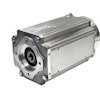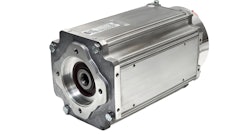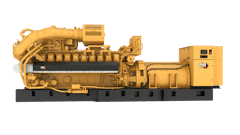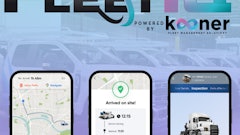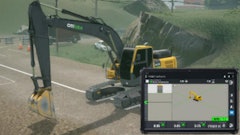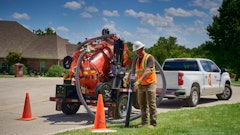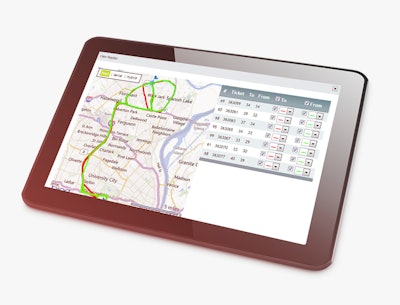
The demand for real-time supply chain visibility is becoming the standard, which means it’s no longer enough for consumers to know when their orders have left the plant and then cross their fingers in the hopes that their materials get to the right place at the right time—and in the right condition.
A Transportation Management System (TMS) delivers a paperless approach that makes it possible to collect twice as much data compared to older, paper-based methods. Automating dispatch operations and eliminating the dependence on paper tickets is revolutionizing the efficiencies in which materials can be delivered, and it also does wonders for fleet productivity.
Integration with a Truck Tracking/Telematics system allows you to track trucks, fuel, navigation, driver logs and driver performance, resulting in optimal fuel usage and asset utilization. Routes can be optimized to reduce miles and fuel usage, which also lowers costs.
Keeping drivers happy is an important part of the business. TMS helps tremendously to speed up the invoicing process, boosting your company’s reputation and enabling you to pay drivers daily and keep them on the road. Most importantly? These systems can help you gain the ability to truly track the profitability and performance of each job that is scheduled.
Increase Efficiencies with Automated Truck Scheduling and Dispatch
It’s no doubt that the impact of the driver shortage is affecting many businesses, but many companies fail to consider the fact that they might not be fully utilizing the number of drivers that are currently employed. Ridding your operation of manual tasks allows your organization to run effectively and lets you handle growth while tracking your scheduled jobs and available drivers, enabling you to fully utilize your existing fleet.
These systems provide partially or even fully-automated scheduling, assigning drivers to planned loads. With the ability to identify the right driver for each job, you’ll significantly increase delivery efficiency and customer satisfaction. Dispatchers have all the necessary tools available to them to make informed decisions, and less time spent scheduling allows for more resources spent on other strategic tasks.
Think about the stress that is placed on your dispatchers on a daily basis – is it a common occurrence for your dispatchers to be at work until 7 or 8 at night? What if they could be home by 4 instead? The ability to plan next day routes more efficiently would allow them to leave earlier and be assured that their jobs for the next day are taken care of. The dispatch has full visibility of the day that makes it easy to assign trucks. Once the trucks are assigned, one press of the button sends each driver their dispatch for the next day in either text message or email, instead of spending hours calling all drivers with tomorrow’s dispatch – one click and it is done.
Customers Want Information on Their Deliveries
Let’s face it – customer expectations are much higher than they used to be (we can thank Amazon for that), and to truly provide a seamless customer experience, they need visibility into the status of the materials that they are paying for. A TMS provides the ability to view where drivers and shipments are located in real-time. The TMS provides information as to the amount of time a route takes and can then create an efficient route schedule. Also, it provides information as to which drivers and routes are most efficient.
Paperwork Processing/Billing Got You in A Slump?
In many hauling operations, poor internal communications are a big problem. An estimator will have one bit of information about what the rates are, the driver knows about something that happened on the job that should be added to the billing, the dispatcher has different notes on the order, and at the end of the day, the biller is completely out of the loop.
The quoting capabilities of a TMS enables sales guys to generate quick and accurate quotes, see their material costs at a glance, create freight rates based on hourly standards or zones, and pass all quoted information to jobs.
With smart quoting capabilities, you can take in all of the variables that make up an accurate quote, such as truck type, tonnage capacity, and driver costs. Materials and freight can be quoted separately or blended together to provide one delivered rate. Once the job is billed, it flows through dispatch along with notes of what occurred on the job. The rates for the job increase from the beginning for what you are billing, what quarries were delivered materials, what your internal costs are to purchase or make that material, and anything that happened throughout the day where an additional charge would come through. It empowers you to ensure that pricing information is passed quickly and accurately from quoting all the way through to invoicing and driver pay.
[SPONSORED] Increase profitability and efficiency with your fleet now with a free fleet management system demo >>
Normally, the driver has to record the number of loads that they delivered on a haul sheet, and the biller has to organize it. Invoicing can take up to three days due to manual data entry. With a TMS, the tickets and the status of the tickets come in automatically. When the billing department at the trucking company is ready, they are able to pull tickets through to invoice without having to key in the information on each ticket. This ensures data accuracy across the operation and provides the ability to pay daily.
Do You Know if Your Jobs Are Truly Profitable?
The most important decision that a small business owner will ever make is how to price jobs and services to determine what those jobs truly cost and to avoid overruns. It’s important to be able to track key performance indicators, such as loading times, unloading times, loop times, and return dollar per hour information on each load and job. Knowing this information allows trucking companies to measure its performance on each job and to determine which aspects of the business are more profitable. Without real-time information, it can be difficult to track profitability, which will ultimately eat into your bottom line. A TMS that touches all aspects of the quote-to-cash process will enable you to balance revenue and expenses in real-time.
 Jennifer Wall, Customer Experience Manager for HaulIt at Command Alkon
Jennifer Wall, Customer Experience Manager for HaulIt at Command Alkon


